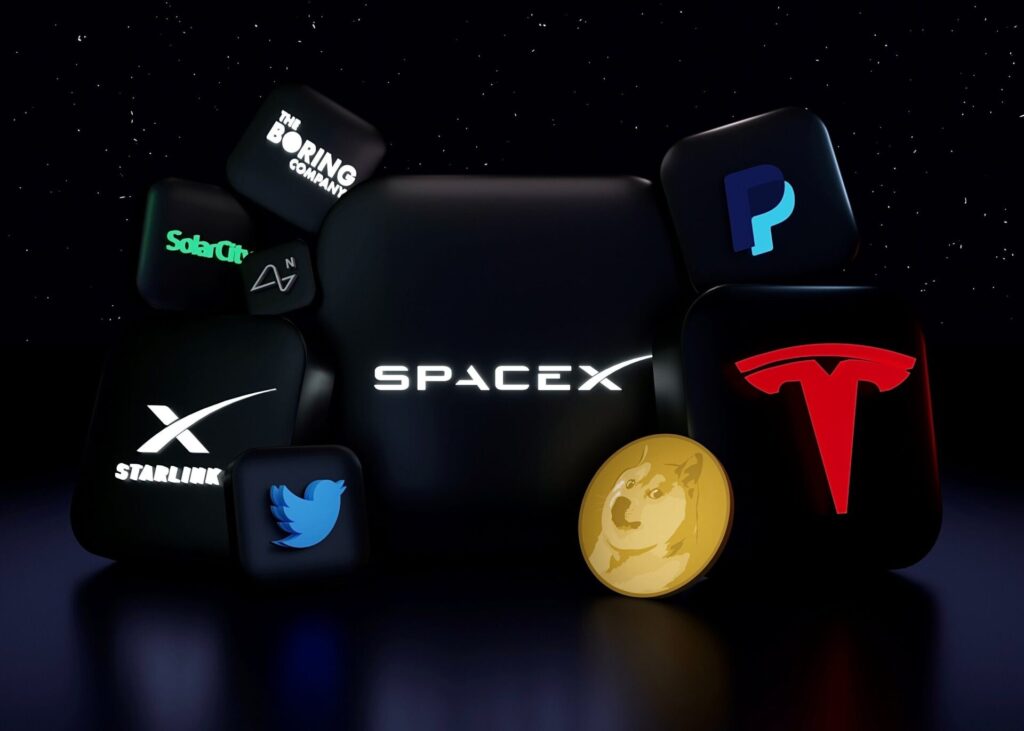
In an era where the boundaries between technology and finance are becoming increasingly fluid, Elon Musk, the creator of companies like Tesla and SpaceX, is making a clear distinction. Despite widespread enthusiasm for cryptocurrencies, Musk confirms that none of his companies will issue their own digital token. What is behind this decision and what are its implications for the future of finance? We dispel doubts.
In the world of digital finance, where new cryptocurrency tokens are born every day, Elon Musk, a visionary and entrepreneur who has paved the way in the commercialization of space and electric mobility, sets clear boundaries for his corporate giants. Tesla and SpaceX will remain on the sidelines of the cryptocurrency market – at least when it comes to creating their own tokens.
Such a stance, expressed by Musk on the social platform X, is all the more surprising since the billionaire himself is no stranger to the world of virtual currencies. It’s no secret that Musk has amassed assets in Bitcoin (BTC), Ethereum (ETH), and Dogecoin (DOGE) personally or through his companies. Support for DOGE, dubbed by him as “the people’s cryptocurrency,” has even become the subject of many discussions and speculations about the future of this coin.
With the growing popularity of cryptocurrencies, attempts to associate well-known names with new digital projects seem inevitable. However, as warnings from user Dogedesigner indicate, the appearance of the token XAI could have misled potential investors by suggesting a collaboration with Musk’s artificial intelligence company. In response to these speculations, Musk firmly denied any plans to issue cryptocurrencies through his enterprises.
According to experts, such a move can be interpreted as an attempt to protect the brand from unauthorized use, as well as a sign of caution towards the highly volatile nature of the cryptocurrency market. Moreover, it may indicate Musk’s aim to create a solid, integrated financial platform that wouldn’t require engaging in risky cryptocurrency ventures.
Musk’s plans for X, which is to become a comprehensive financial platform, do not include digital tokens, but focus on a full spectrum of financial services. Although this vision may sound like a distant future, the company is already seeking to obtain a money transmission license in the United States, which is a step towards eliminating traditional banks from the financial lives of users.
Reluctance to create their own cryptocurrency doesn’t mean that Musk is turning away from blockchain technology or other digital innovations. On the contrary, it may be a sign of a strategic choice to focus on other aspects of the technological revolution in finance, such as digital payments, data security, or the decentralization of services.
Ultimately, the decision not to issue cryptocurrency tokens by Elon Musk’s companies is not only a reflection of the famous innovator’s personal convictions but also a signal to the market. It indicates that not every financial technology has to be paired with cryptocurrencies, and success in the digital age can take many forms – sometimes entirely unrelated to issuing one’s own digital currency.
Photo by Mariia Shalabaieva on Unsplash
